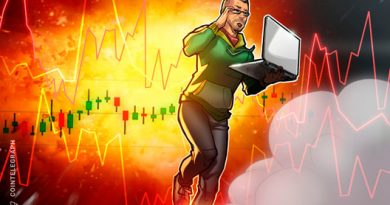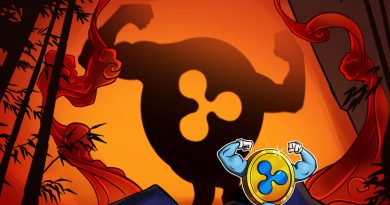What type of situation, if any, could crash Bitcoin? VC firm partner speculates
Early pandemic concerns crashed Bitcoin in 2020. What else could cause a similar reaction?
During the market downturn in March 2020, Bitcoin (BTC) fell over 50% in value across a two-day period. Traditional financial markets also dropped vastly in March. Although Bitcoin posted a standout recovery, going on to smash all-time price highs, one might wonder what, if any, condition could instigate a similar future drop for crypto’s largest asset. Dermot O’Riordan, partner at venture capital outfit Eden Block, recently gave his thoughts on the matter.
“In the short-term Bitcoin’s value prop as a non-sovereign censorship resistant hedge to the dollar is growing stronger by the day,” O’Riordan told Cointelegraph. “Saying that, Bitcoin’s volatility isn’t going away anytime soon, and I expect to see a lot of volatility for years to come from those in the money taking money from the table,” he said, adding:
“Something often overlooked however is that every new price milestone unlocks a new larger class of institutional investor with a mandate to purchase the asset, which will dampen sell-side pressure.”
Bitcoin has won over a number of mainstream financial giants, including MicroStrategy, MassMutual, Paul Tudor Jones and others. Such players sank significant cash into the digital store of value in 2020, with the buying trend heating up in the latter portion of the year.
Although BTC’s price continues to rise, recently breaching $40,000, the asset still has its liabilities. O’Riordan noted Bitcoin’s top two longer-term risks. The first: “How its rough consensus governance mechanism handles questions around the security budget of the protocol if fees don’t rise sufficiently to supplement ever reducing Bitcoin issuance,” he explained. The second he labeled as “the risk of the institutionalisation of Bitcoin hindering the trustless base layer.”
Bitcoin has overcome substantial adversity over the past 12 years, however, each time eventually recovering and resulting in greater adoption.




